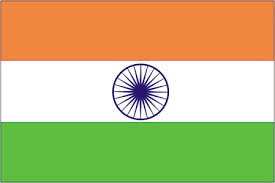India’s Explanation of Vote (POST-VOTING): Nuclear Weapons Cluster - 78th UNGA First Committee, UNHQ, New York, October 2023
India’s Explanation of Vote (POST-VOTING)
Nuclear Weapons Cluster
78th UNGA First Committee, UNHQ, New York, October 2023
L.30 Steps to building a common road map towards a world without nuclear weapons
We acknowledge that Japan, the lead sponsor, is the only country to have suffered a nuclear weapons attack. We share the resolution’s aspiration on nuclear disarmament. India remains committed to a nuclear weapon free world and to maintaining a unilateral and voluntary moratorium on nuclear explosive testing.
India has abstained on OP5 and OP6.
India supports the commencement of negotiations on FMCT in the CD on the basis of CD/1299 and the mandate contained therein. However, India does not support calls for moratoria on the production of fissile materials for nuclear weapons or nuclear explosive devices. A moratorium by its very nature is voluntary, reversible and not verifiable, unlike an FMCT which will impose a treaty obligation and will be verifiable and irreversible. A moratorium may lead to weakening the resolve to negotiate an FMCT and set us back.
India is not a signatory to the NPT and therefore is not bound by obligations arising from the NPT or its Review Conferences which this resolution refers to.
India has not joined INFCIRC/549. India's obligations in respect of IAEA safeguards of fissile material are contained in India's specific Safeguards Agreement with the IAEA contained in INFCIRC/754 and an additional protocol contained in INFCIRC/754/Add 6. While India remains committed to implementing fully these agreements, it does not recognize any additional obligations or commitments in respect of safeguards or management of fissile material which are beyond the scope of these two documents (INFCRC/754 and INFCIRC/754/Add 6) that India has concluded with the IAEA.
Our views on the CTBT are well known and in view of these we have voted against OP7.
L.32 Ethical Imperatives for a Nuclear Weapon Free World
On L.32, India agrees with several provisions of this resolution, in particular its acknowledgment that nuclear disarmament is a global public good of the highest order.
We support the ICJ Advisory Opinion that there exists an obligation to pursue in good faith and bring to a conclusion negotiations leading to nuclear disarmament in all its aspects under strict and effective international control.
In this regard, India has supported the NAM proposal for the commencement of negotiations in the Conference on Disarmament on a Comprehensive Nuclear Weapons Convention.
The global elimination of nuclear weapons will require progressive steps aimed at reduction in their military utility, reduction in their role in security policies and a universal commitment with a global and non-discriminatory multilateral framework for nuclear disarmament. Until that goal is accomplished, questions relating to the immorality of nuclear weapons have to be examined in the framework of the sovereign responsibility of states to protect their security in a nuclearized global order put together on the pillars of nuclear deterrence.
India's nuclear doctrine of credible minimum deterrence, with the posture of no first use and non-use against non-nuclear weapon States achieves this very balance.
L.33 - Towards a nuclear-weapon-free world: accelerating the implementation of nuclear disarmament commitments
India has voted against L.33.
This resolution is embedded in the NPT context. India’s views on the NPT are well known.
We have voted against OP20, since India cannot accept the call to accede to the NPT as a non-nuclear-weapon State. In urging India to accede to NPT “promptly and without conditions,” the draft resolution negates the rules of customary international law, as enshrined in the Vienna Convention on the Law of Treaties, which provides that a State’s acceptance, ratification or accession to a treaty is based on the principle of free consent.
India is a responsible Nuclear Weapon State and therefore there is no question of India joining the NPT as a non-nuclear weapon state.
The resolution also contains references to the CTBT and the TPNW. India’s position on these treaties too is well known.
L.52 - Addressing the legacy of nuclear weapons: providing victim assistance and environmental remediation to member States affected by the use or testing of nuclear weapons
India broadly shares the sentiment of the sponsors embodied in this resolution.
We have participated in the four meetings on the humanitarian impact of nuclear weapons and supported relevant resolutions on the issue in multilateral forums.
Our approach is premised on the shared notion of the serious threat to survival of humankind that could be posed by the use of nuclear weapons.
India's positions on NPT, CTBT and TPNW, referred to in the resolution, are well known. The resolution also does not differentiate between use and testing of nuclear weapons, nor between the different kinds of tests that have been conducted. In addition, India believes that any responsibility cannot accrue to it for actions by others over which India has no control. Therefore, we have been constrained to abstain on the resolution.
L.57: Nuclear Disarmament
On L.57, India shares the main objective of the resolution, which is the complete elimination of nuclear weapons within a specified framework of time. Let me reiterate that India attaches a high priority to nuclear disarmament.
However, we have abstained on the resolution because of certain references to the NPT, CTBT as well as the TPNW, on which India’s position is well known.
We support other provisions of the resolution, which we believe are consistent with India’s positions on nuclear disarmament and non-proliferation. We compliment Myanmar for retaining vital principled paragraphs in this resolution which are supported by a vast majority of member States.












